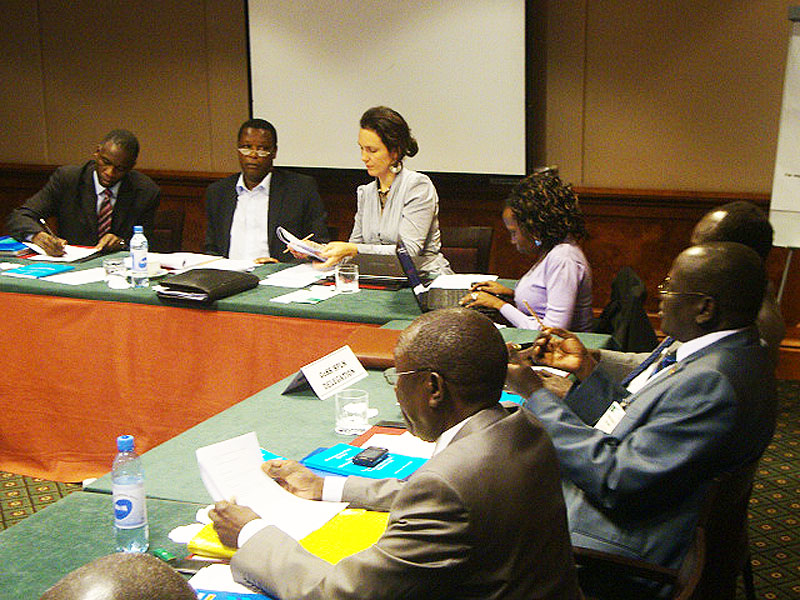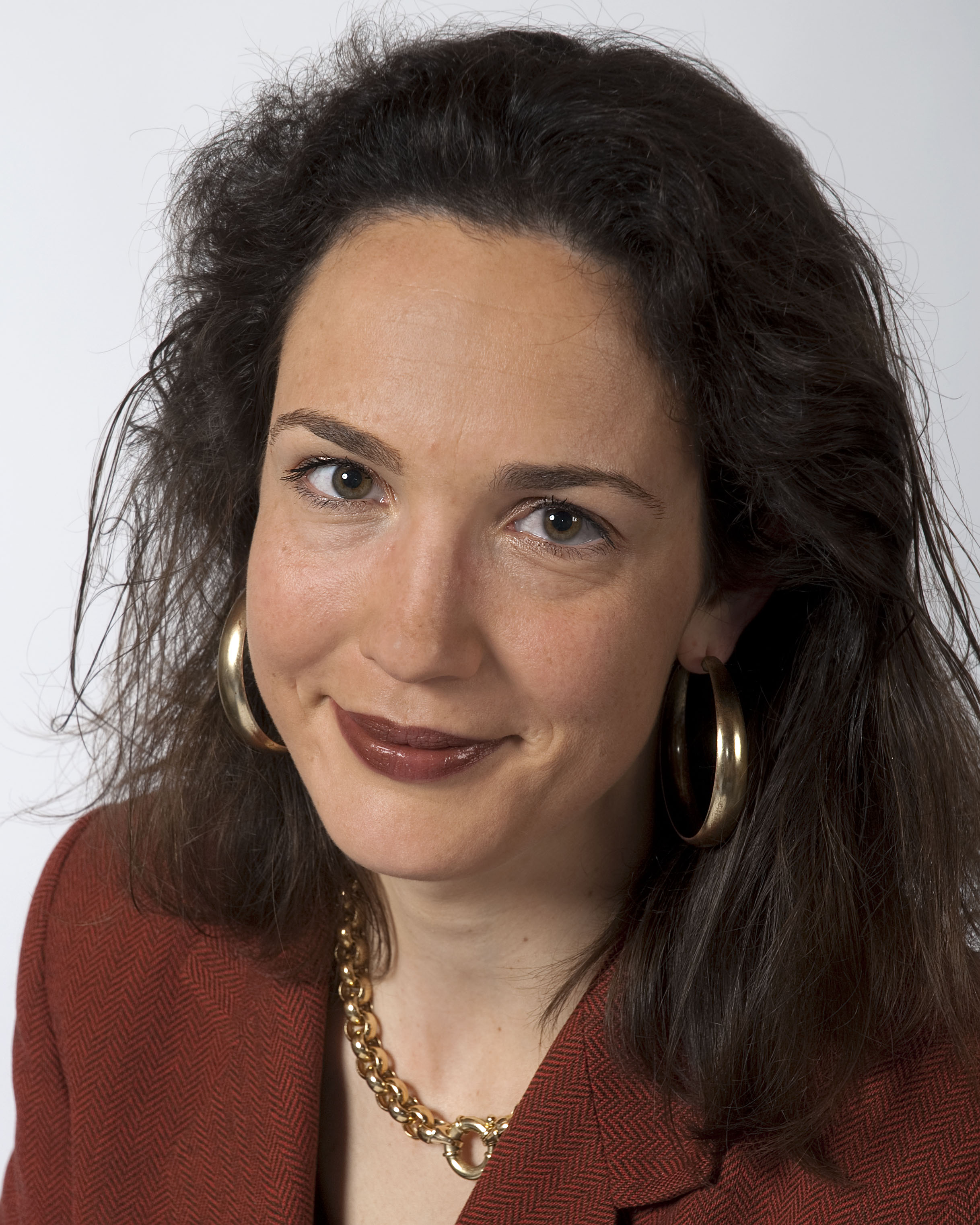For our second interview of Women in International Law Month, we are joined by Dr Sarah Nouwen. She is a leading expert on international law of peacemaking and justice in Africa, and Co-Deputy Director of the Lauterpacht Centre for International Law at the University of Cambridge.
Dr Nouwen, you have had a very accomplished career in international criminal justice and peacemaking. What first sparked your interest in international law, particularly in Africa?
My interest in international law and my interest in Africa originate in different sources. Ever since first attending international summer camps at age 11, I have been drawn to “the international” – a space that seemed to offer more diversity, freedom and surprise than the national sphere. To me, the international was not the domaine réservé of interaction among states, but a space where all kinds of groups, formal and informal, and individuals meet, and in which these encounters make and remake all those involved.
My interest in Africa was sparked by coincidental encounters: Bishop Tutu encouraged me to study in South Africa, an NGO allowed me to do research for them in Senegal, my previous boss at the Dutch mission to the UN happened to become the Dutch ambassador in Sudan and welcomed me back as a colleague, which proved the beginning of a long engagement with Sudan and South Sudan.
However, while the interests in international law and in Africa may have different origins, they merge naturally like the White Nile and the Blue Nile. With its unparalleled diversity, Africa is a productive site to study the encounter between the thick space of the international, which can include the most “local” village, and international law.
You have worked for several government agencies and NGOs prior to your current role at the University of Cambridge. What is a role that had a significant impact on you, and what did it entail?
While each of these experiences had their own impact, the contrasts among them had perhaps the biggest effect. It was thanks to those contrasts that I got a clearer picture of what I wanted to be working on. For instance, in my diplomatic roles, I loved the topics I was dealing with – issues that matter so much to so many people (justice, peace, food security, and health), but some forms of bureaucracy can make even the most energetic person lethargic.
I loved the efficiency and sense of appreciation in the private sector, in particular in international commercial arbitration. And yet, at the end of the day, I always walked home thinking “both parties are big companies … the fight is eventually between insurance companies … is this it?” Weighing up the pros and cons, I decided to go for the substantive issues that I wanted to work on, rather than the working environment, albeit within limits.
Academia, combined with the occasional practice, feels like the ideal place to be in, for now: relative freedom to engage with the topics one wants to engage with, an opportunity to encourage students to analyse the world through multiple lenses, and every now and then, some involvement in current affairs.
What has been the highlight of your work in international criminal justice, peacemaking and diplomacy so far? Why?
Highlights are probably those experiences where the learning curve was steepest. I particularly remember:
- Serving as the most junior assistant to the Dutch representative on the UN Security Council (2000): seeing how the Council works (and does not work), how issues get (or do not get) on the agenda and discussed, and how crises (at that time: Kosovo, East Timor interventions and Sierra Leone) get addressed.
- Working as legal and political advisor to the Netherlands Embassy in Sudan (2005-2006). I arrived just after Dr John Garang’s helicopter crashed, which many feared could also be the death of the Comprehensive Peace Agreement between the Government of Sudan and the Sudan People’s Liberation Movement that had been concluded six months prior. Observing the international attempts to help a country towards peace reminded me of Michel Quint’s observation on a “humanity … that wishes to trap the universe within its hand and cannot keep hold of a butterfly”.
- Doing my first PhD research fieldwork in Uganda and Sudan (2008). Most of all, I remember the unforgettable people whom I encountered on the way, who fed, challenged and improved my assumptions, my writing and, hopefully, myself.
- Joining the staff serving three former African Presidents who constitute the African Union High-Level Implementation Panel for Sudan and South Sudan. Highlights include the brilliance of my colleagues; the difficulty of getting parties actually to negotiate; the energy required for 24/7 high-level politics; the adrenaline of the motorcade versus the boredom of days and days of waiting in hotel lobbies for something to happen; and then suddenly to find oneself in a situation that has radically changed.

Photo by Eric Abibu Ngandu
Have you experienced or witnessed barriers for women working in international criminal justice and peacemaking? If so, how has the role of these women changed over the years?
In international criminal justice, not really. There may be barriers, but I have not encountered them. In the ICC, women play leading roles (read on this point the book by the (Australian) political scientist Louise Chappell, The Politics of Gender Justice at the International Criminal Court).
The peacemaking world that I have observed is much more male dominated, the women-peace-and-security agenda notwithstanding (on this agenda and international law, listen to (another Australian!) Christine Chinkin’s powerful Hersch Lauterpacht Memorial Lectures). Men dominate both the mediation teams and the negotiating delegations. International organisations could definitely appoint more women as mediators. Negotiating parties should be encouraged to include women in their delegations, and as full members, not just as representatives speaking on women’s issues or inserting “women’s perspectives”.
The women I met in Darfur, South Sudan, and Northern Uganda had strong political opinions and often disagreed among themselves. They were just as political as men (and I use the term political in a positive sense, not as a dirty word). Initiatives using “women’s representatives” or “women’s issues” risk depoliticising women in the name of empowering them.
Peace negotiations have become more and more important because more and more issues get determined in them; many “comprehensive peace agreements” become the basis for new constitutions. Women’s participation in the negotiations thus becomes essential because it is also their future that is being set in stone. On the other hand, the fact that there are few women in negotiating teams is often a reflection of the status quo in a particular society — is it realistic to expect mediators not just to end the fighting (usually already a tall order) but also change the society, then and there, at the negotiating table, or even before one gets the parties to the negotiating table?
There are things that mediators can do, apart from encouraging parties to include women in their teams. They can start by treating men and women equally in negotiations. For instance, they themselves can show awareness of the still all-too-common phenomenon that when a woman says something, it gets ignored, whereas if a man says exactly the same, it gets picked up. There is also the persistent practice of mansplaining, a practice also prevalent in academia.
With African nations being less engaged in the ICC, what are your thoughts on the future of the court and international criminal justice on the continent? Should anything change?
I do not specialise in predicting the future, but I do not see the ICC disappearing any time soon. The Court still has enough work, and enough states parties are willing to pay for its budget. Obtaining cooperation may be more difficult when more states are hostile to the Court, but that hostility has been very context-specific. We have even seen states withdrawing their withdrawals from the ICC.
But that is not to say that nothing should change. The South African government has been intimating that part of its reason for withdrawing is that international law protects more values than just the fight against impunity. We still need to develop an architecture in which, if in concrete instances these values seem to clash, a decision can be made that takes into account all these values. It is crucial that people most affected by such decisions can have a say in how they define these values (for instance, justice or peace).
Your work is rather unique for an international lawyer, as it involves considerable field research and empirical study. Why do you value this approach?
To me, this approach is natural because of the way I encountered international law. During my law studies in The Netherlands, I had understood international law as a force for peace, justice and progress. When studying and working in Africa, I encountered at times a different international law. This encounter forced me to challenge my own assumptions. International criminal law and the legal literature on peacemaking are rife with assumptions that are worth scrutinising. That is why I like the empirical: let’s first try to understand what is going on, before we prescribe how it should be resolved.
Any advice for young students and lawyers hoping to practice in international law?
Try to get many diverse experiences to identify what type of work gives you the greatest sense of satisfaction. If you truly want something, you can do it; your enthusiasm will pave the way.

Photo by Ian Fleming
Dr Sarah Nouwen is Senior Lecturer in Law and Co-Deputy Director of the Lauterpacht Centre for International Law, University of Cambridge, and a Fellow of Pembroke College. She is the author of Complementarity in the Line of Fire: The Catalysing Effect of the International Criminal Court in Uganda and Sudan (Cambridge University Press) and numerous articles on issues of peace and justice. Her article telling the story of researching that book “‘As You Set out for Ithaka’: Practical, Epistemological, Ethical, and Existential Questions about Socio-Legal Empirical Research in Conflict” won in 2016 the prize of the Leiden Journal of International Law for the best article published in 2013-2015. In 2014 she won a Philip Leverhulme Prize for her scholarship and was awarded an ESRC Future Research Leaders grant for her current project “Peacemaking: What’s Law Got to Do With It?”.
She is married and mother of Thomas (2) and Samuel (1).
